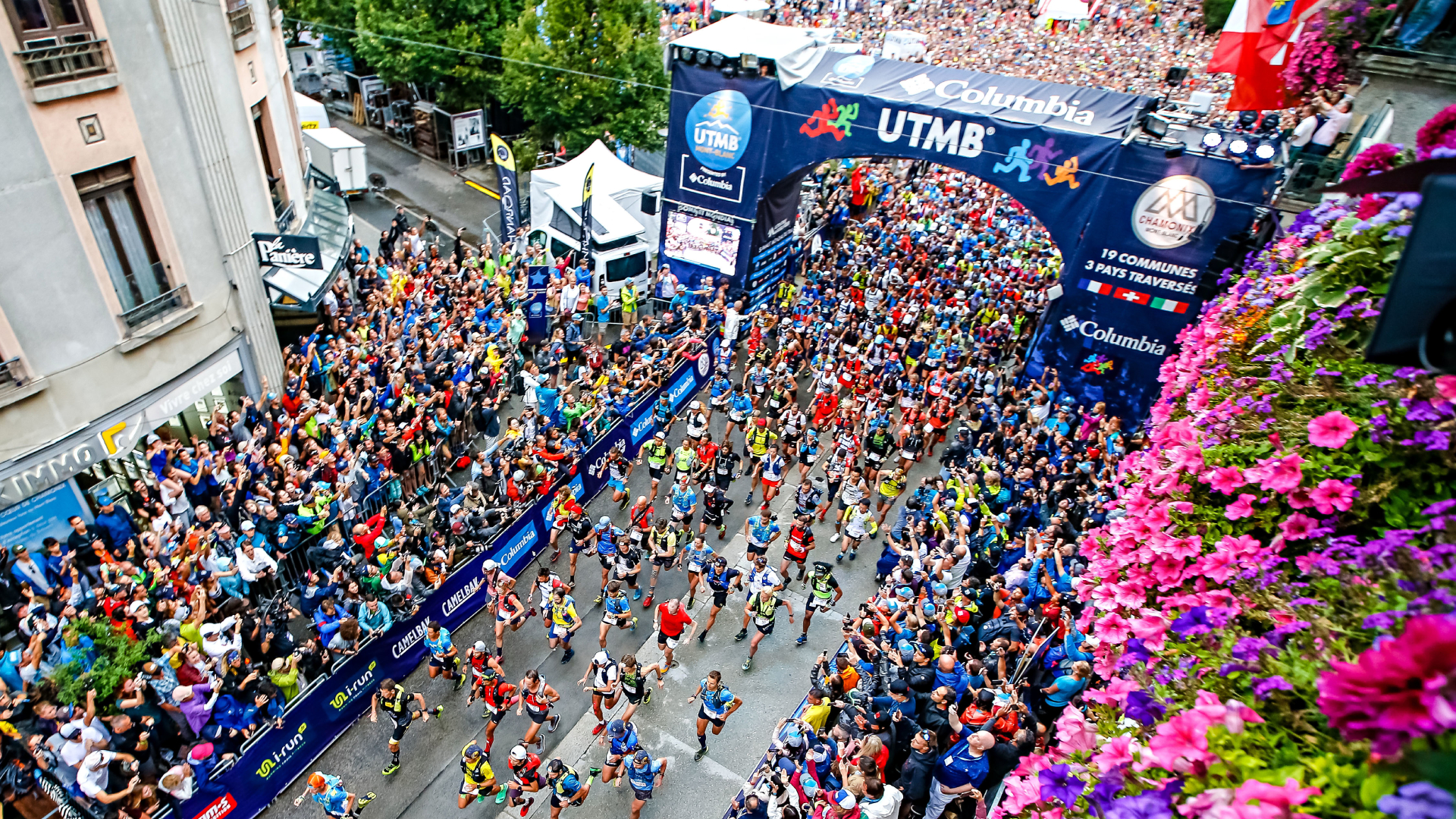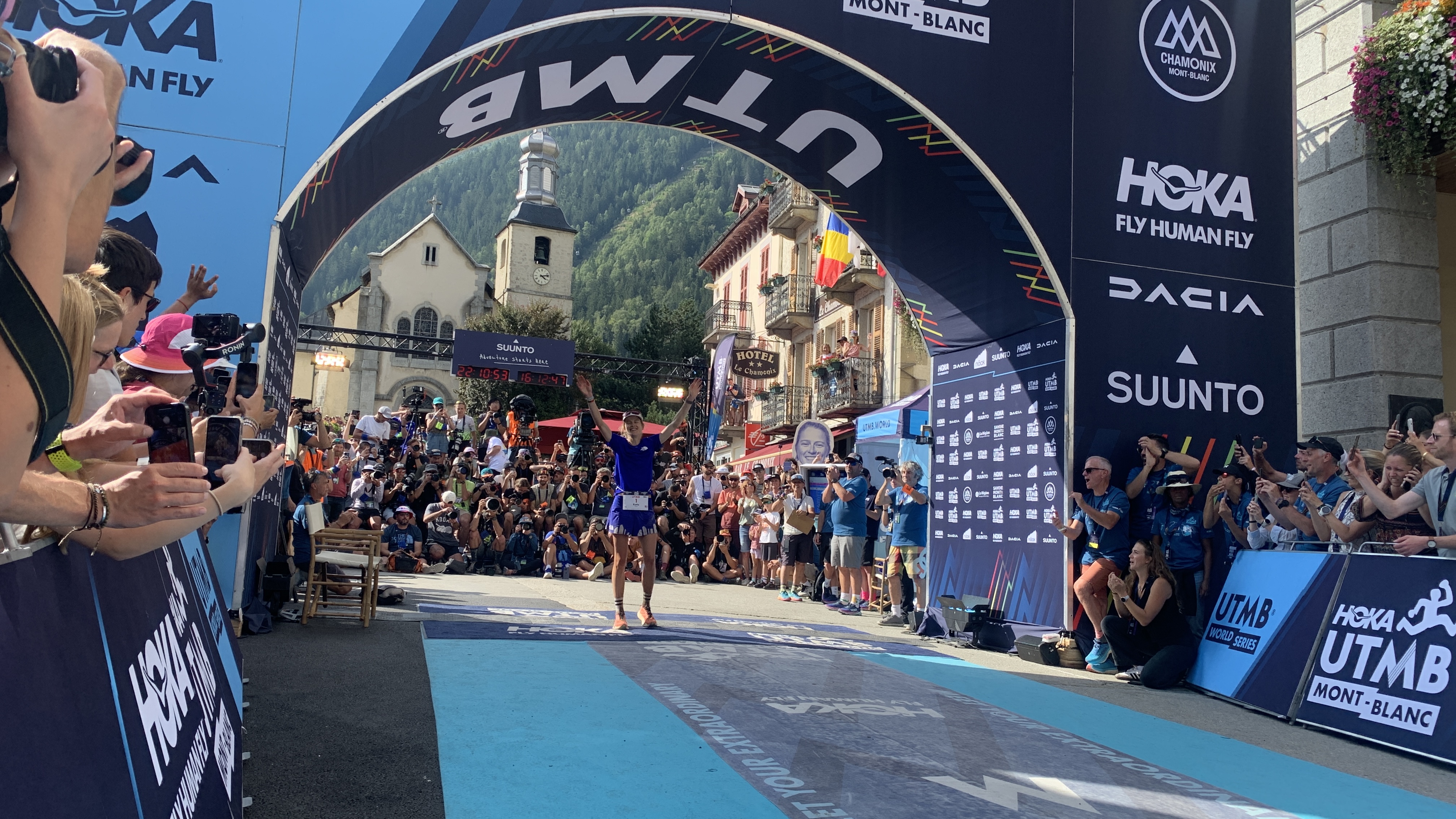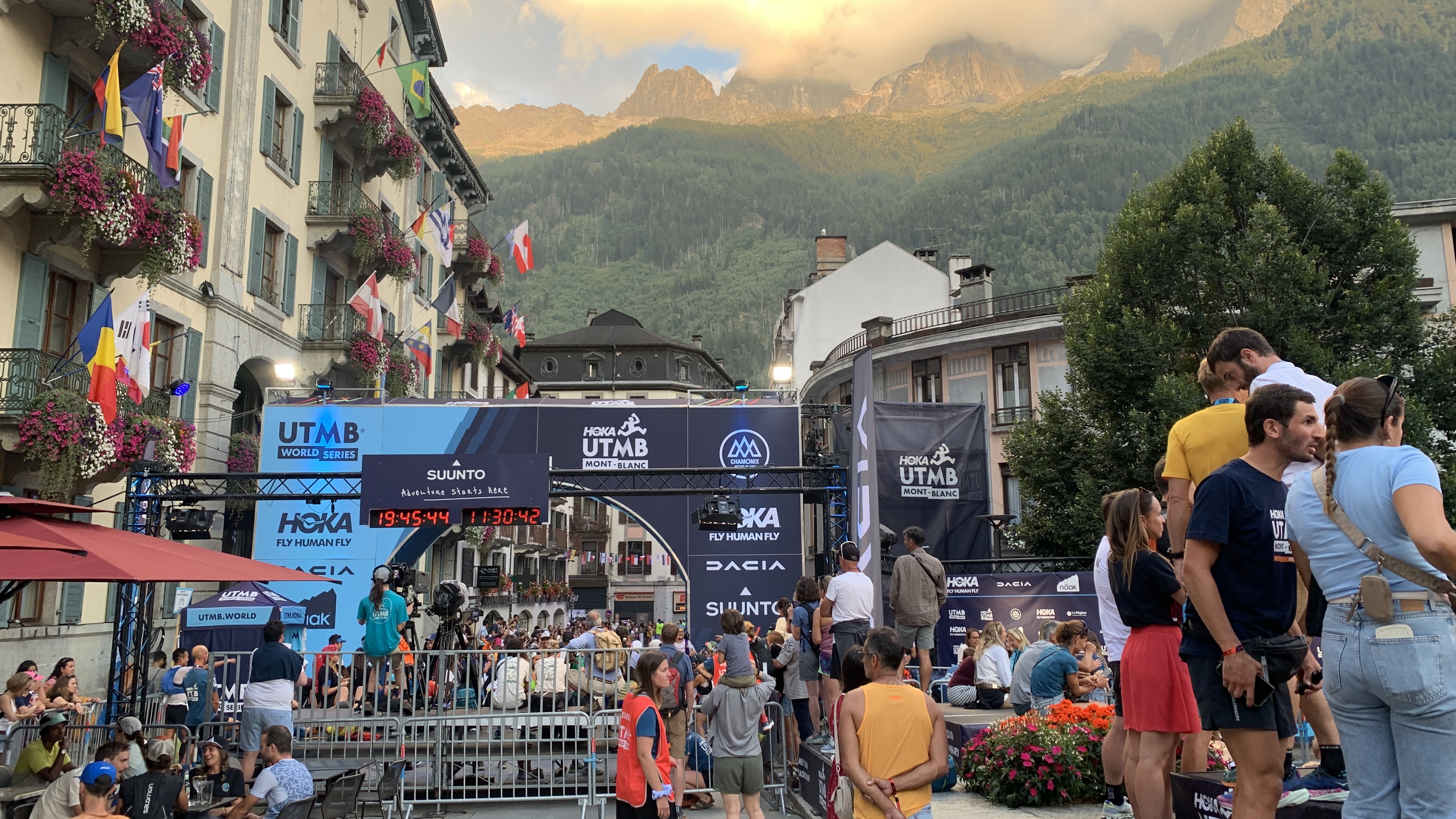"We’re taking action to protect the environment that we cherish": UTMB Mont Blanc runners will be rewarded for choosing low carbon travel options in bid to reduce race emissions by 20%
A new audit reveals that 88% of the UTMB Mont Blanc's total emissions are generated by transport, and race organizers want to reduce that number

Race organizers at the world's most iconic trail running event have announced an innovative new scheme to cut carbon emissions, by incentivizing runners to choose low carbon travel.
In 2026, runners in the UTMB Mont-Blanc will receive recommendations for the most carbon-efficient travel route to the Chamonix area based on their home location. Those who follow the suggestions will be rewarded with a 30% bonus in the highly competitive lottery draw for the 100-mile race as well as the shorter-distance CCC, OCC and ETC races.
Organizers say the initiative is part of a four-pillar plan, developed in collaboration with Protect Our Winters and the Pro Trail Runners Association, to offset the carbon footprint of the event, which takes runners on a 100-mile loop around Mont Blanc and draws tens of thousands of people to Chamonix.
“As witnesses to climate change, we’re taking action to protect the environment that we cherish. Given the overwhelming impact of transport in our carbon footprint, collective action is essential to achieving results," says Isabelle Viseux-Poletti, UTMB France Events Director.

UTMB organizers report that 79% of runners come from inside Europe, and 60% of those participants travel to the area by car despite available rail services. The race, which serves as the finals for the UTMB circuit, has been capped at 10,000 entries to manage impact, but a 2024 carbon audit for the event revealed that if organizers want to reduce emissions, they need to look at transport to and from the event.
Conducted by Utopies consultancy, the report revealed that approximately 88% of the event’s total emissions are generated by transport, with 86% of those emissions linked to travel to and from the Chamonix area.
"As organisers of an international event, we have a duty to provide real, practical and motivating solutions that support more sustainable travel habits no matter where people are coming from. We want each person to understand the impact of their travel choices and feel empowered to reduce it,” says Viseux-Poletti.
All the latest inspiration, tips and guides to help you plan your next Advnture!
Race organizers say the system will account for the unique travel realities in each country, "ensuring a fair and equitable approach for all participants regardless of where they live."
Runners will also receive exclusive discounts on rail travel between Paris and Geneva.

The initiative is part of an overall commitment to reducing carbon emissions by 20% by 2030 and involves required financial contributions from all stakeholders. UTMB organizers say they will release a carbon report every year with updates.
Private cars are already banned from 80% of key course locations, which are accessible exclusively via UTMB Mobility shuttles, and in 2025, runners will have access to the UTMB Go app for help planning their journey to the area and managing local travel with the lowest possible carbon impact – all without needing a car.
The event has previously come under fire for taking on car company Dascia as a title sponsor, but in 2024, trail running shoe brand Hoka assumed that role after Jim Walmsley threw down a new course record in 2023, sporting a pair of the Hoka Tecton X 3s.
Julia Clarke is a staff writer for Advnture.com and the author of the book Restorative Yoga for Beginners. She loves to explore mountains on foot, bike, skis and belay and then recover on the the yoga mat. Julia graduated with a degree in journalism in 2004 and spent eight years working as a radio presenter in Kansas City, Vermont, Boston and New York City before discovering the joys of the Rocky Mountains. She then detoured west to Colorado and enjoyed 11 years teaching yoga in Vail before returning to her hometown of Glasgow, Scotland in 2020 to focus on family and writing.

